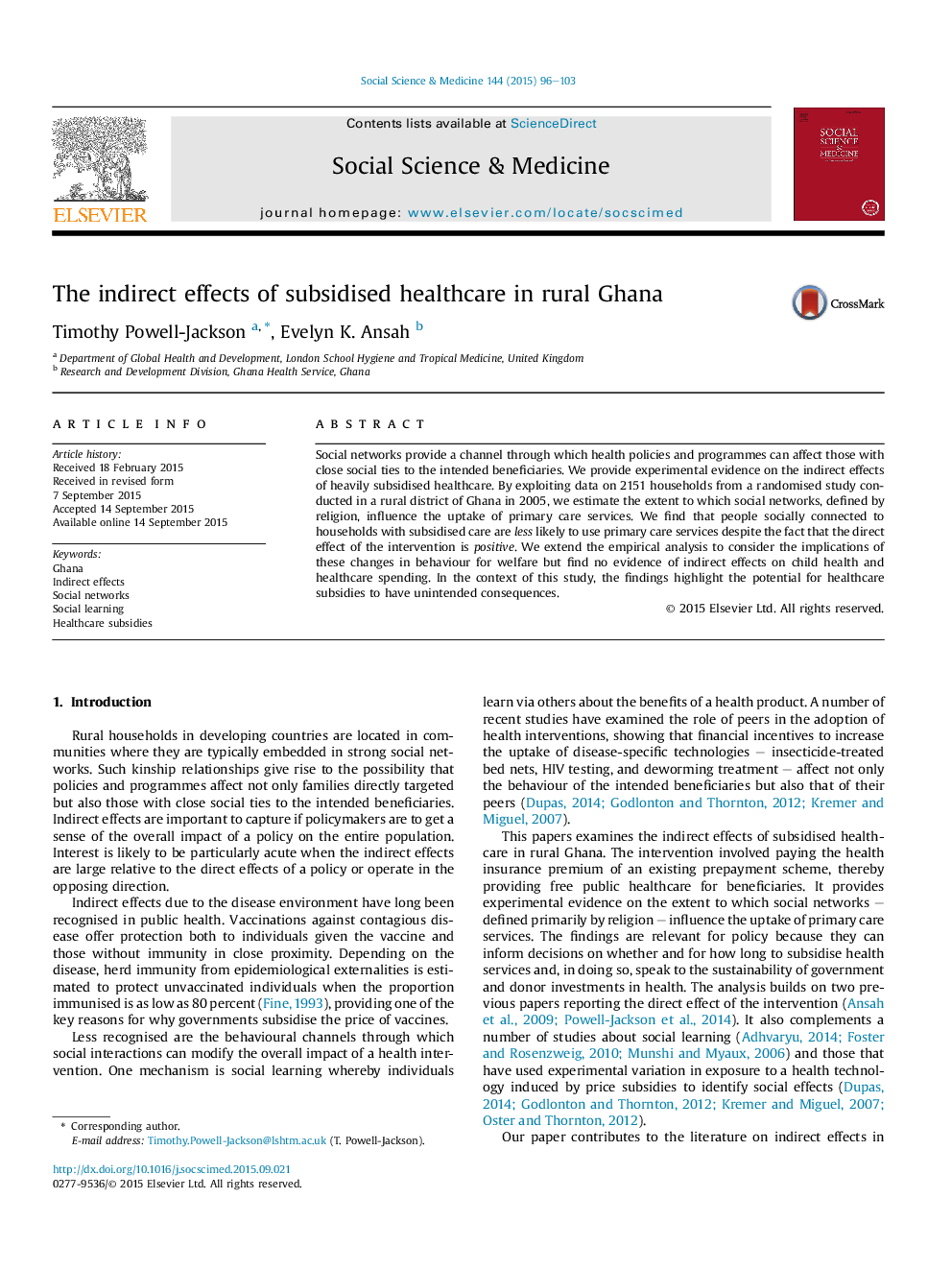| Article ID | Journal | Published Year | Pages | File Type |
|---|---|---|---|---|
| 952237 | Social Science & Medicine | 2015 | 8 Pages |
•We examine the indirect effects of subsidised healthcare through social networks.•Healthcare subsidies had a positive direct effect on use of primary care.•People were less likely to use primary care if their social contacts were given subsidies.•We find no evidence of indirect effects on child health or healthcare spending.•Findings show the potential for such subsidies to have unintended consequences.
Social networks provide a channel through which health policies and programmes can affect those with close social ties to the intended beneficiaries. We provide experimental evidence on the indirect effects of heavily subsidised healthcare. By exploiting data on 2151 households from a randomised study conducted in a rural district of Ghana in 2005, we estimate the extent to which social networks, defined by religion, influence the uptake of primary care services. We find that people socially connected to households with subsidised care are less likely to use primary care services despite the fact that the direct effect of the intervention is positive. We extend the empirical analysis to consider the implications of these changes in behaviour for welfare but find no evidence of indirect effects on child health and healthcare spending. In the context of this study, the findings highlight the potential for healthcare subsidies to have unintended consequences.
